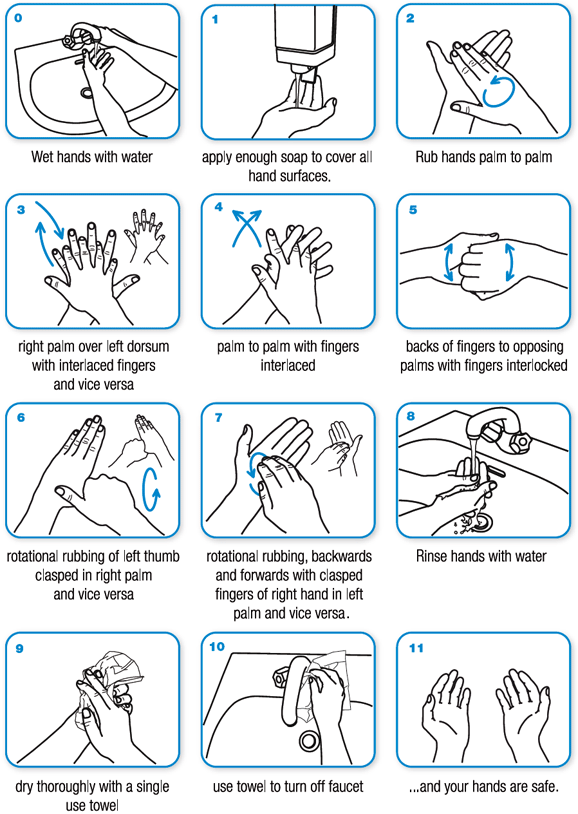Keeping clean during the coronavirus outbreak
Photo courtesy of the World Health Organization
An infographic detailing how to properly wash your hands.
March 15, 2020
100,000 people infected. Over 4,000 dead. Over 100 countries and territories directly affected. Thousands of communities in lockdown, desolate and barren. This is the reality of the Coronavirus (COVID-19) pandemic, and the virus doesn’t seem to be stopping any time soon.
The coronavirus has recently made its entrance into Fairfax County, as two cases were confirmed by Virginia health officials over the March 7-8 weekend. The first case, a U.S. Marine stationed at Fort Belvoir, was reported by the Pentagon on Saturday, March 7. The second, from an 80-year-old man who had recently returned from a cruise on the Nile River, was recorded by Virginia health officials on Sunday, March 8.
Given the virus’ high pathogenicity and the fact that the virus has already perforated into Fairfax County, it is imperative that the TJ community remains vigilant with regards to sanitation and hygiene. Such practices will not only help you to protect yourself, but also protect those around you.
One of the best ways to protect yourself is washing your hands with soap and water – the act of scrubbing creates friction, which helps to remove germs from your skin. Multiple health organizations, like the World Health Organization (WHO) and the Center for Disease Control (CDC) have recommended that individuals wash their hands for at least 20 seconds, although more time can help to remove more germs. However, if soap and water are not readily available, the CDC also suggests using hand sanitizer with at least 60% alcohol content, although hand sanitizer has been shown to be less effective than soap and water.
Additionally, social distancing from others, especially those who are coughing and sneezing, is also another effective method of keeping safe. The WHO recommends a distance of at least three feet, as COVID-19 has been known to spread through respiratory droplets, which are produced in coughs and sneezes. By maintaining distance from others, your risk of being exposed to these particles is drastically decreased.
The CDC also recommends that frequently used or dirty surfaces are cleaned and disinfected daily to reduce the possibility of exposure to the virus, as the virus has also been known to spread through physical contact. This will also help to mitigate the risk of contracting the virus, and is a good way to ensure general cleanliness.
Given that little is known about COVID-19 due to its novelty, making sure that you reduce the risk of contracting it by maintaining good hygienic practices should be of the utmost importance.






